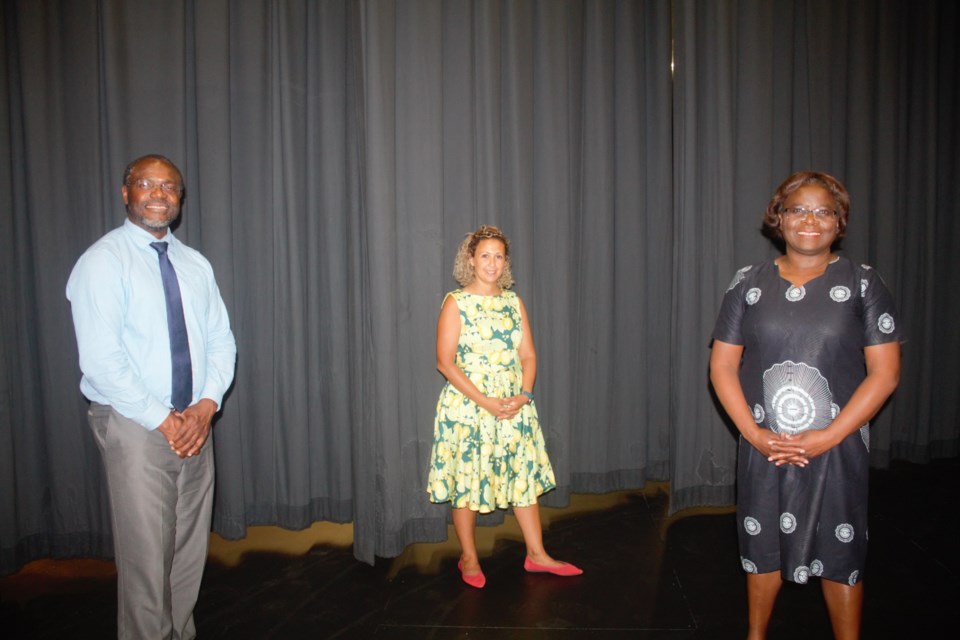MELFORT — Black members of the Melfort community told stories of discrimination they’ve faced while living in the city at a roundtable discussion on racism.
They included grocery employees refusing to pack items, RCMP officers stopping them because they believed their car could have be stolen, and a local daycare refusing to take a grandchild citing a fear that other parents would pull out their kids
Several Melfort community leaders, including the mayor and members of council, heard these stories during the discussion, which aimed to address systemic and anti-Black racism in practical and tangible ways.
The panelists included Julien Nyirenda, a registered nurse at the Melfort Hospital; Dr. Tamzyn Levendall, a Melfort family physician; and Dr. Yemi Laosebikan, a surgeon.
Laosebikan, one of the organizers, said they wanted to raise awareness of systemic racism.
“Most examples are personal, but at the end of the day it manifests in outcomes where you see different outcomes for different classes or races of people for doing the same thing. One has to look at specific individuals to identify those examples.”
Nyirenda shared several anecdotes through her time living in the community, after moving to Melfort in 2004.
“There was one encounter where I went to buy groceries in one of the stores,” Nyirenda said. “This girl that was packing groceries refused to pack groceries for me. My friend asked her why. She said, ‘I can’t pack for her, but I do it for any other person.’”
Nyirenda said she packed up her groceries and went home.
Another situation involved local childcare. She said she had already had an agreement with the daycare about accepting her grandchild.
“When it was time for me to pay them and get him there, I was told he was going to be a hindrance to the other kids. Some parents would not bring their kids in because of him. I said, ‘Well, I’ll think I’ll move on then.’”
Even travelling around Saskatchewan she found herself stopped by the RCMP, who demanded to know where she got her Dodge car.
“On two occasions I’ve been stopped by RCMP, once when I was going from Prince Albert, and the other time from Regina. They wanted to know how I acquired that car. That shocked me, because the people around that are driving the same type of car, and yet I was stopped twice wanting to find out where that car was acquired.”
Laosenbikan said his first encounter with anti-Black racism in the community came from the immigration process from a high ranking official when he first moved to Saskatchewan.
“He ended it by saying, ‘If you break one of the bylaws, I will not hesitate to rescind your license to practice.’ As a professional, I understood that’s what the bylaws are there for,” Laosenbikan said. “But it was the last statement he made before he said goodbye that took me by surprise – ‘and you will then join the rest of the people like you driving taxis in town.’”
Laosenbikan said this comment stunned him, but coming from South Africa and living through Apartheid, he said this was “the least of the things” he would call discrimination.
“So I took it, and I walked out. Now looking like that in isolation it may mean nothing, but I’m aware of my colleagues that have had similar experiences over their course of immigration.”
Laosenbikan said he doesn’t profess to know the full extent of how to end systematic discrimination, but part of it is through having these conversations and becoming more aware.
“Once we get an understanding of how this affects other people, find ways to influence policy to make things better or equal or equitable for everyone.”
The panel was organized by WeCollaborate in conjunction with the City of Melfort on July 16.




